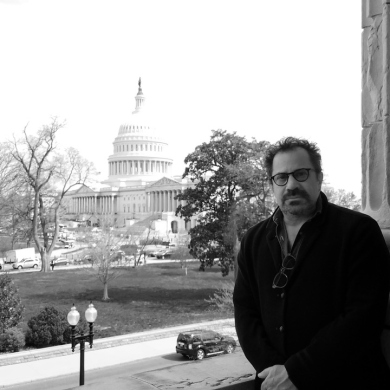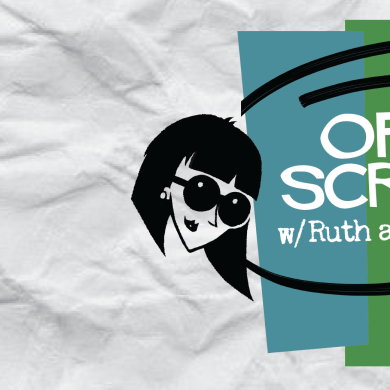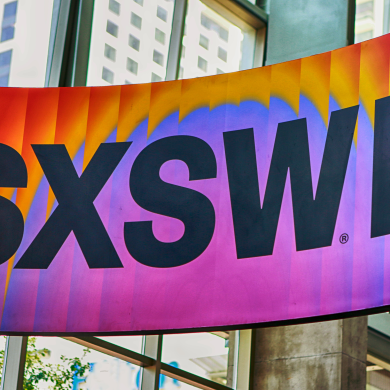By Justin Sanders
Breaking their own exorbitant lobbyist-spending records has become a regular occurrence for Google – but that’s just one tool in their toolkit of political influence. Google also makes friends and influences people by soliciting scholarship at leading university campuses throughout the country.
While dressed up as “research grants,” Google enriches a network of professors to bolster its own corporate agenda through the perpetuation of dubious “studies.” Google-friendly professors and institutions have helped bolster the company through propaganda that supports the Google agenda. You might say that these professors serve as Google’s puppets – and while there are many academics being funded by Google, here are three that stand out from the rest:
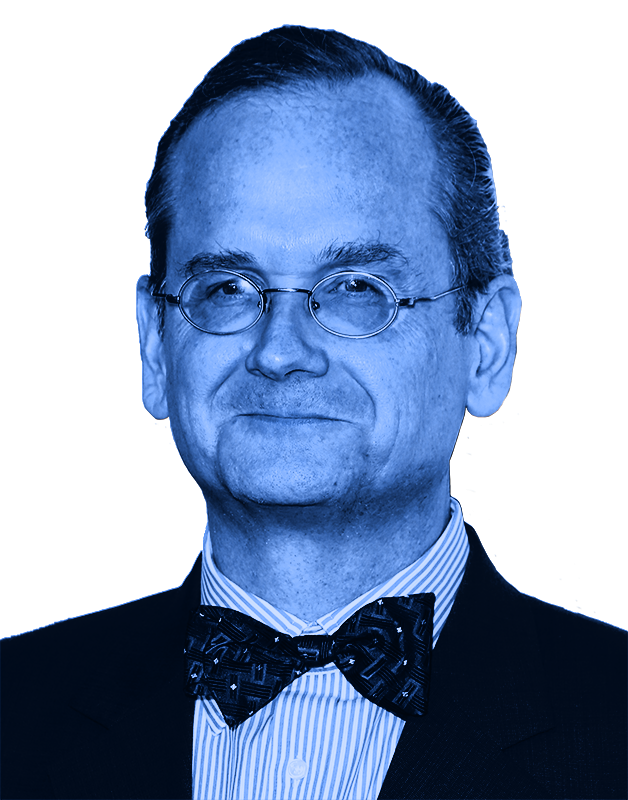
LAWRENCE LESSIG
For Google, Stanford University is the place where it all began – where founders Larry Page and Sergey Brin built the first version of the search engine that would eventually take over the world. In turn, their company has always been a significant donor to Stanford, forging a symbiotic relationship with the university.
This mutually beneficial arrangement became readily apparent in 2006, when Google pledged $2 million to Stanford’s Center for Internet and Society (CIS), a “cyberlaw” program with the stated goal to, among other things, “prevent copyright from stifling the creativity it is supposed to foster.” The sum was hearty enough to ensure the future of the program. And guess what? Within months of CIS receiving the donation, its founder, Lawrence Lessig, took to the pages of The New York Times – writing an op-ed that defended Google’s YouTube in a legal battle it was then waging with Viacom over copyright infringement. The article listed Lessig as a “professor of law at Stanford,” but failed to disclose the Google-backed Stanford research group he was heading up at the time.
In the years since the op-ed ran, this unethical lack of transparency has continued to receive scrutiny, with references to it appearing on noteworthy pro-copyright websites as recently as last year. For Lessig, an attorney and legal scholar, this endorsement of Google’s anti-copyright positions was consistent with his lengthy record of attacking creative livelihoods and defending the companies that would emerge as dominant platforms.
As notable copyright defender David Newhoff put it, “any number of common assertions about copyright’s supposed obsolescence in the digital age are very likely derivative of something written or said by [Lawrence] Lessig.” Those “assertions” include writings that have compared takedown requests of infringing music on YouTube to a “war on our kids,” and that have accused creative rightsholders of being technology Luddites because of their desire to be compensated fairly for their works online.
Lessig has since moved on to Harvard Law School as the Roy L. Furman Professor of Law and Leadership, where he remains one of the most influential and powerful anti-copyright academics in the world. He is a former Board member for the notoriously anti-copyright, Google-backed Electronic Frontier Foundation, and he has written numerous copyright-protected books that are sold in actual bookstores. Whether he’s lashing out against legislation that seeks to fairly pay legacy musicians or publishing essays with titles like “In Defense of Piracy,” Lawrence Lessig is a man people take seriously. He even once announced his candidacy for president, which, unlike his anti-copyright writings, disappeared without a trace.
He is “certainly an intelligent man,” Newhoff concluded. “Of course, that might be why his ideas are ultimately so dangerous.”
MARK A. LEMLEY
By his own account, Mark Lemley, the Director of the Stanford Program in Law, Science and Technology has more than 167 scholarly articles and seven books to his name, covering topics ranging from intellectual property to computer and internet law, antitrust, and beyond. Of those 167 articles, at least 12 of them were directly funded by Google, according to the Google Transparency Project’s “Research Papers by Google-Funded Academics” archive.
These Google-backed publications include titles such as “Intellectual Property in the New Technological Age,” “Ignoring Patents,” and “Rationalizing Internet Safe Harbors.” For instance, Lemley’s “many papers on ‘abusive’ patent litigation have been very influential in helping Google convince Congress, the Patent Office, and the courts to weaken patent law protections over the last decade,” wrote Forbes in 2017.
For a time, Lemley’s expertise made him an oft-quoted resource in articles focused on Google’s business practices and legal troubles, including stories covering the company’s still-unresolved copyright dispute with Oracle. What quotes from him failed to disclose, however, is that Lemley is not only a Google-friendly academic – he has literally been on the company’s payroll, as a practicing lawyer. And, despite having a clear bias in favor of Google in the articles where he appeared, Lemley, as The Verge reported in 2012, was “almost always quoted as a Stanford professor, not ‘Google outside counsel.’”
While Google vigorously defends its own intellectual property, its funding of academics like Lemley has helped espouse the tech-friendly ethos known as the “Myth of Free” – the assumption that platforms such as YouTube and Facebook inevitably benefit society by providing an abundance of cultural riches that “cost nothing” for consumers to access. And, because free is always an attractive price, Lemley’s view that weakening intellectual property laws will only further “enrich society” earns undue prestige.
But, not only does this view overlook the tremendous cost in labor and investment to produce a film, a book, a song, or a television show in the first place, it is not even true that digital distribution is free. And, as many users have lately learned, if we don’t pay with money, we pay with personal information that further empowers Google and the other major platforms.
By now, it has become abundantly clear that this model is posing an existential threat not just to creative livelihoods but to, among other things, societal norms, our health, our elections, and democracy itself.
DEVEN DESAI
Deven Desai keeps a lower profile than the other people on this list, but as Google’s “first, and to date, only Academic Research Counsel” from 2010 to 2012, he deserves a special mention.
During that tenure, Desai was the academic who recruited other academics to do Google’s anti-copyright work, spending more than $2 million of his employer’s money on wooing professors for conferences and research papers. He did this while Google was looking to cement its dominance as a monopoly. In September 2012, the FTC considering whether to bring antitrust charges against Google for favoring its own products in search results. In response, according to the Wall Street Journal, “Google’s law firm, Wilson Sonsini, sent the FTC chairman an 8-page letter in the company’s defense and attached Google-funded research papers supporting its arguments.”
Desai was the guy who made those papers happen. Also, during his time with Google, he coordinated scholarly outreach efforts designed to keep online privacy regulation as lax as possible. One Stanford professor brought in by Desai, Ryan Calo, received a $400,000 grant from Google. The gift enabled him to produce a paper, “Against Notice Skepticism in Privacy (and Elsewhere),” that argued that consumers should continue to rely on each individual platform’s impossibly convoluted privacy policy notices, rather than having the government pass comprehensive online privacy regulation. But significantly, at the time, Calo’s paper failed to disclose the source of its funding.
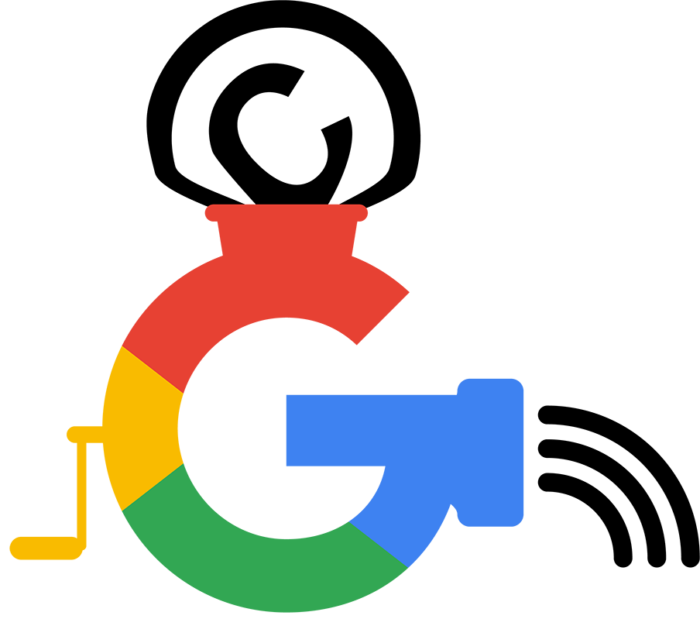
BAD INFORMATION AGE
As shown, even the most brilliant of intellects are vulnerable to Google’s siren call with millions of dollars to invest on “research” that helps preserve their power. Additionally, as a recent report explains, “Google is using its sponsorship of academic research not to advance knowledge and understanding, but as an extension of its public relations and influence machine.”
It turns out that the same company making it difficult to trust what we see online is making it just as difficult to trust what we learn from some of our most respected scholars. The members of the Google academic puppets listed in this article are only the tip of the iceberg of professors who are more than happy to sway public opinion in the wrong direction.
Nothing Google does surprises us, or much of the public, anymore – so we are not completely fazed that they funded academic research that supports their questionable business practices. However, we MUST continue to call them out – or else, they will continue to shirk accountability without any repercussions.
.
Lawrence Lessig image: Debby Wong / Shutterstock.com / CreativeFuture

